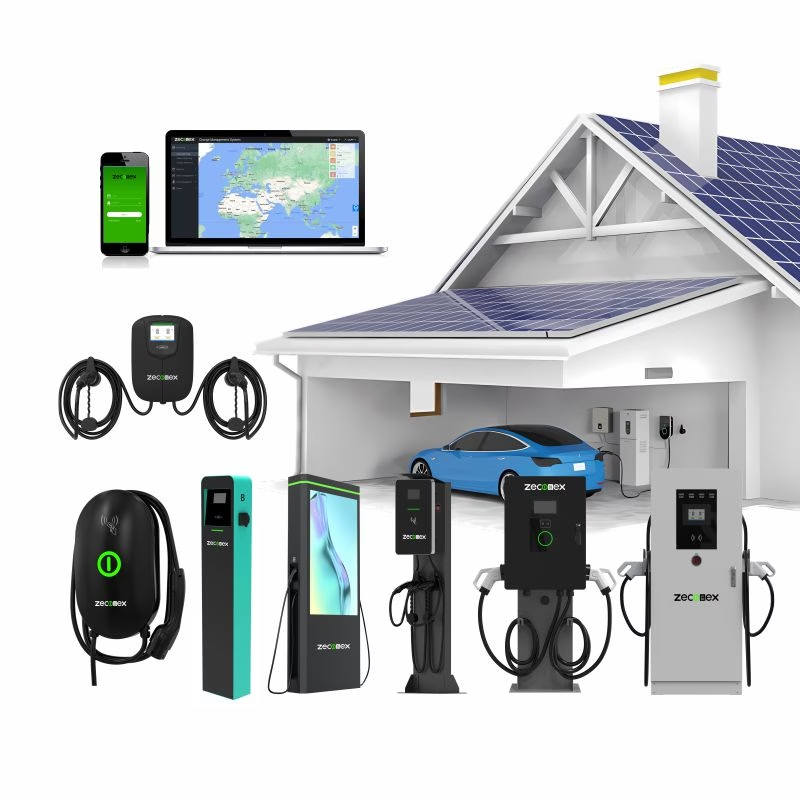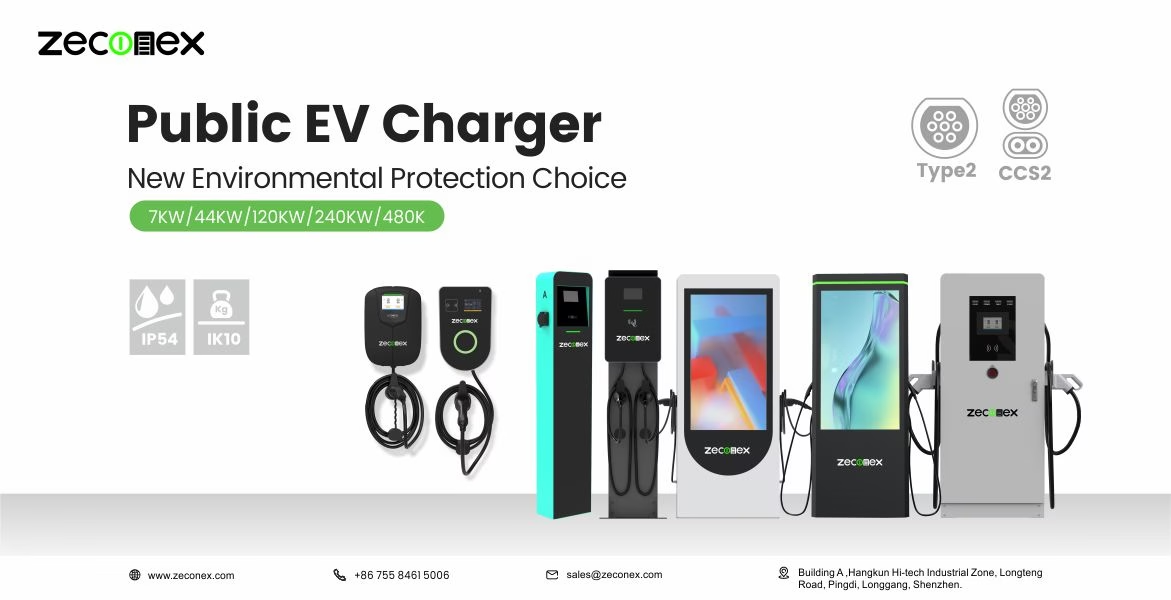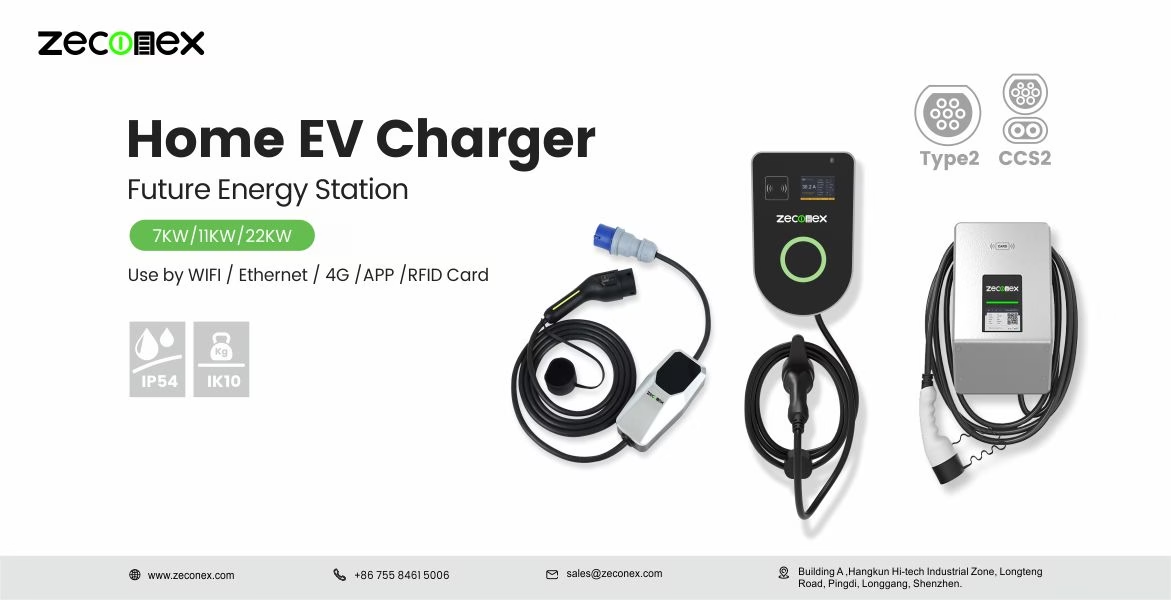By Zeconex China Electric Vehicle Charger Supplier
With the booming development of the global new energy vehicle industry, the electric vehicle charger market is ushering in unprecedented opportunities and challenges. As the core component of energy replenishment for electric vehicles, the market demand for chargers is growing in a positive correlation with the ownership of new energy vehicles. However, the competition in this field is also becoming increasingly fierce, from technological innovation to price wars, from branding to service upgrading, how can wholesalers stand out in the complex market environment? This article will provide practical suggestions for electric vehicle charger wholesalers to cope with market competition from three dimensions: market pattern, differentiation strategy and service optimization.
Analysis of the Competitive Landscape of the Electric Vehicle Charger Market
Market Size and Growth Trends
According to the “Global and China Electric Vehicle AC Charger Industry Market Share and Ranking Research Report” published by YH Research in 2025, the global electric vehicle AC charger market size has reached 25.52 billion yuan in 2024, and is expected to grow to 70.21 billion yuan, with a compound annual growth rate (CAGR) of 15.6%. As the world's largest new energy vehicle market, China's charger market size also occupies an important position. With the promotion of national strategies such as “One Belt, One Road”, China's charger export business is growing rapidly, further intensifying the competition in both domestic and overseas markets.

Market Competition Main Body
Currently, the electric vehicle charger market players mainly include domestic and foreign well-known enterprises (such as Tesla, Ningde Times), local enterprises (such as Huichuan Technology, TGOOD), startups, and upstream and downstream enterprises of the industrial chain. These companies compete for market share through technological innovation, brand influence, and market channel advantages. For example, leading companies such as Tridonic and Star Charging dominate the public charging pile field, while some startups focus on wireless charging, fast charging technology and other market segments.
Market Concentration and Regional Differences
China's EV charger market is relatively highly concentrated, with the top few brands occupying half of the market. However, there are significant differences in market concentration in different regions: first-tier cities and areas where the promotion of new energy vehicles is concentrated have higher market concentration; while in second- and third-tier cities and rural areas, SMEs still have more room for development. Such regional differences provide wholesalers with the opportunity to differentiate competition.
Differentiated Product Strategy: Building Technical Barriers and Scenario Adaptation
Technical Innovation and Patent Layout
In areas such as fast charging technology and smart charging solutions, wholesalers need to increase R&D investment to form technical barriers. For example, they can improve charging efficiency through SiC (silicon carbide) technology or develop liquid-cooling technology to solve heat dissipation problems in high-temperature environments. In addition, patent layout is also the key to protect technical advantages. Wholesalers should actively apply for relevant patents to prevent their technologies from being imitated by competitors.
Scenario-based Product Customization
For different application scenarios (e.g., residential areas, public places, heavy truck charging stations, etc.), wholesalers can launch customized products. For example, they can design wall-mounted and miniaturized chargers for residential areas, provide high-power, multi-interface floor-standing chargers for public places, and develop 1000V/800kW special modules for heavy truck charging stations. Through scenario-based customization, the wholesaler is able to better meet customer needs and enhance market competitiveness.
Green and Sustainability
As global attention to environmental protection and sustainability increases, wholesalers should focus on the green attributes of their products. For example, adopting environmentally friendly materials and energy-saving technologies to reduce the energy consumption of chargers, or developing integrated solutions for optical storage and charging to achieve efficient energy utilization. These initiatives are not only in line with policy guidance, but also enhance the brand image and attract more customers.

Quality Service Strategy: Enhancing Customer Experience and Loyalty
Omni-directional After-sales Service
In terms of after-sales service, wholesalers need to provide omni-directional services such as quick response, technical support and regular maintenance. For example, establish a 24-hour customer service hotline to ensure that customers can get timely help when they encounter problems; provide door-to-door installation and debugging services to lower the threshold of customer use; and regularly inspect and maintain the charger to ensure the long-term stable operation of the equipment. Through quality services, wholesalers are able to enhance customer satisfaction and loyalty.
Digital Service Innovation
Combined with technologies such as big data and artificial intelligence, wholesalers can realize intelligent operation and fault prediction of charging facilities. For example, through data analysis, they can identify potential equipment problems in advance and proactively notify customers of repairs; and use AI algorithms to optimize charging strategies and improve charging efficiency. In addition, wholesalers can also develop online service platforms to provide charging reservation, online payment, real-time monitoring and other functions to improve user experience.
Building a Cooperative Ecology
Wholesalers should actively establish strategic cooperative relationships with new energy vehicle manufacturers, distributors, property companies and others. For example, wholesalers should cooperate with new energy vehicle manufacturers to pre-install chargers as standard accessories on vehicles; cooperate with dealers to jointly promote the construction and use of charging facilities; and cooperate with property companies to lay out charging piles in residential areas, commercial complexes and other places. Through cooperative ecological construction, wholesalers are able to expand market coverage and enhance brand influence.

Summary of Response Strategies and Future Prospects
In the face of fierce market competition, EV charger wholesalers need to build core competitiveness by starting from the dimensions of differentiated products and services. In terms of products, through technological innovation, scenario-based customization and green strategies to meet the diverse needs of customers, in terms of service, through a full range of after-sales service, digital service innovation and the construction of a cooperative ecosystem to enhance customer experience and loyalty.
In the future, with the continuous expansion of the new energy vehicle market and the continuous progress of technology, the electric vehicle charger industry will usher in more development opportunities. Wholesalers need to keep up with market trends and continue to optimize their products and services to cope with the increasingly fierce market competition. At the same time, wholesalers should also pay attention to policy dynamics and actively participate in the construction of charging service networks to contribute to the sustainable development of the new energy vehicle industry.
As a supplier of electric vehicle chargers to Zeconex China, we are always committed to providing customers with high-quality and differentiated products and services. In the future, we will continue to increase investment in research and development to promote technological innovation; optimize the service process to improve customer experience; and strengthen the construction of cooperative ecology to expand market space. We believe that in the fierce competition in the market, only enterprises that continue to innovate and pursue excellence can stand out and become leaders in the industry.
